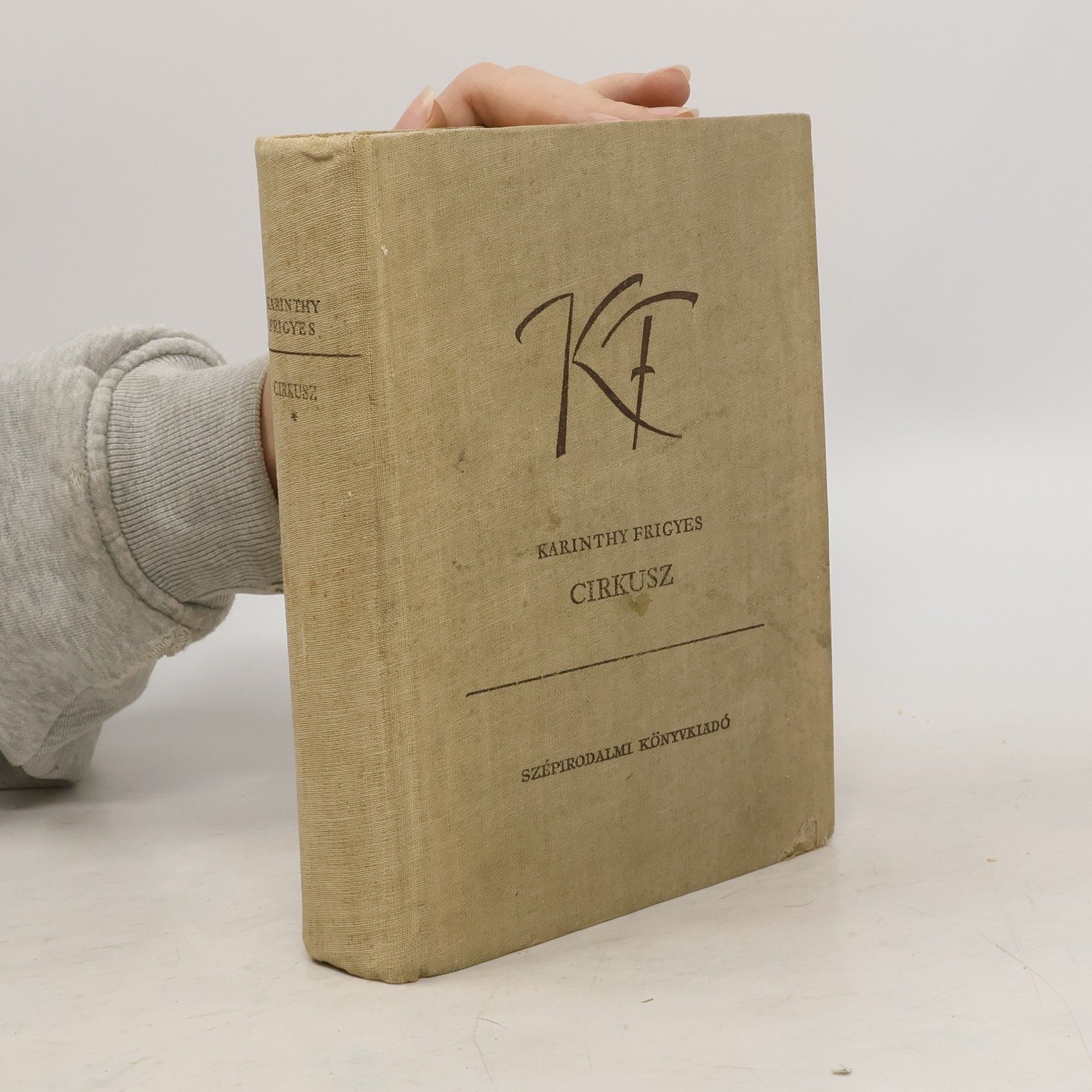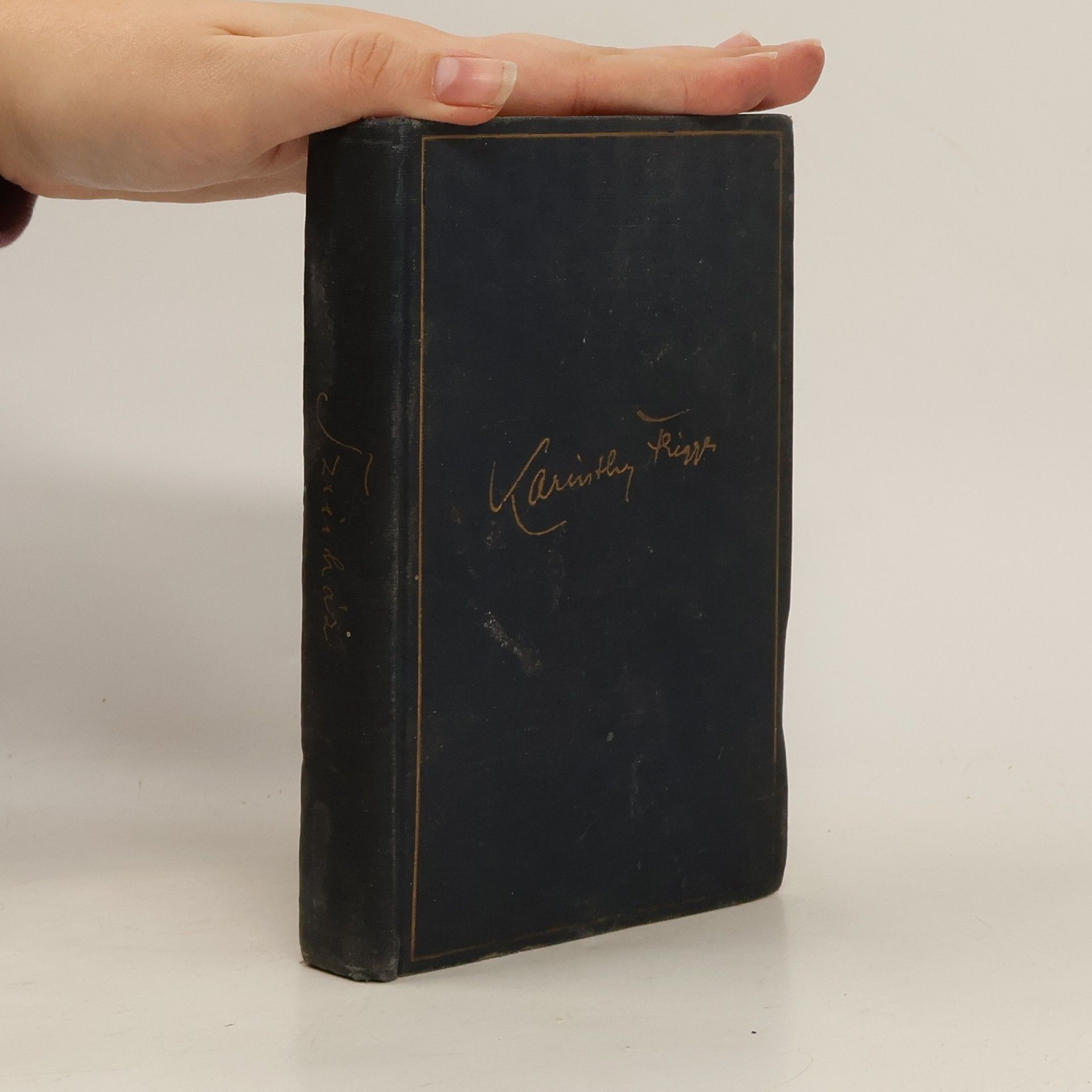The distinguished Hungarian author Frigyes Karinthy was sitting in a Budapest café, wondering whether to write a long-planned monograph on modern man or a new play, when he was disturbed by the roaring—so loud as to drown out all other noises—of a passing train. Soon it was gone, only to be succeeded by another. And another. Strange, Karinthy thought, it had been years since Budapest had streetcars. Only then did he realize he was suffering from an auditory hallucination of extraordinary intensity. What in fact Karinthy was suffering from was a brain tumor, not cancerous but hardly benign, though it was only much later—after spells of giddiness, fainting fits, friends remarking that his handwriting had altered, and books going blank before his eyes—that he consulted a doctor and embarked on a series of examinations that would lead to brain surgery. Karinthy’s description of his descent into illness and his observations of his symptoms, thoughts, and feelings, as well as of his friends’ and doctors’ varied responses to his predicament, are exact and engrossing and entirely free of self-pity. A Journey Round My Skull is not only an extraordinary piece of medical testimony, but a powerful work of literature—one that dances brilliantly on the edge of extinction.
Frigyes Karinthy Books
Frigyes Karinthy was a Hungarian author renowned for his witty and insightful explorations of the human condition. He delved into modern themes like artificial intelligence and gender dynamics with a darkly humorous and satirical touch. His works often engage with literary traditions while offering sharp critiques of the contemporary world. Karinthy's writing is marked by its linguistic playfulness and unexpected turns, prompting readers to contemplate profound ideas.

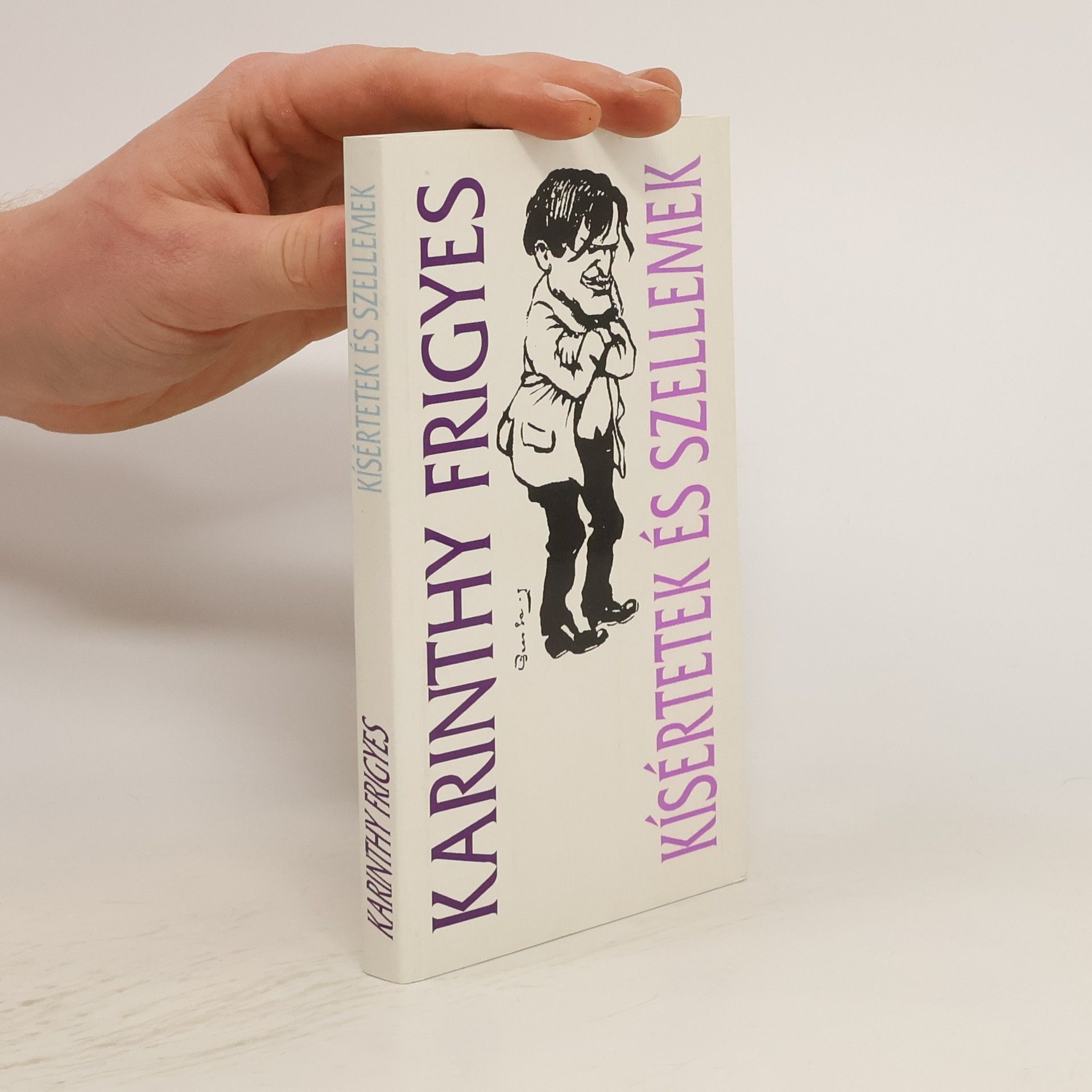
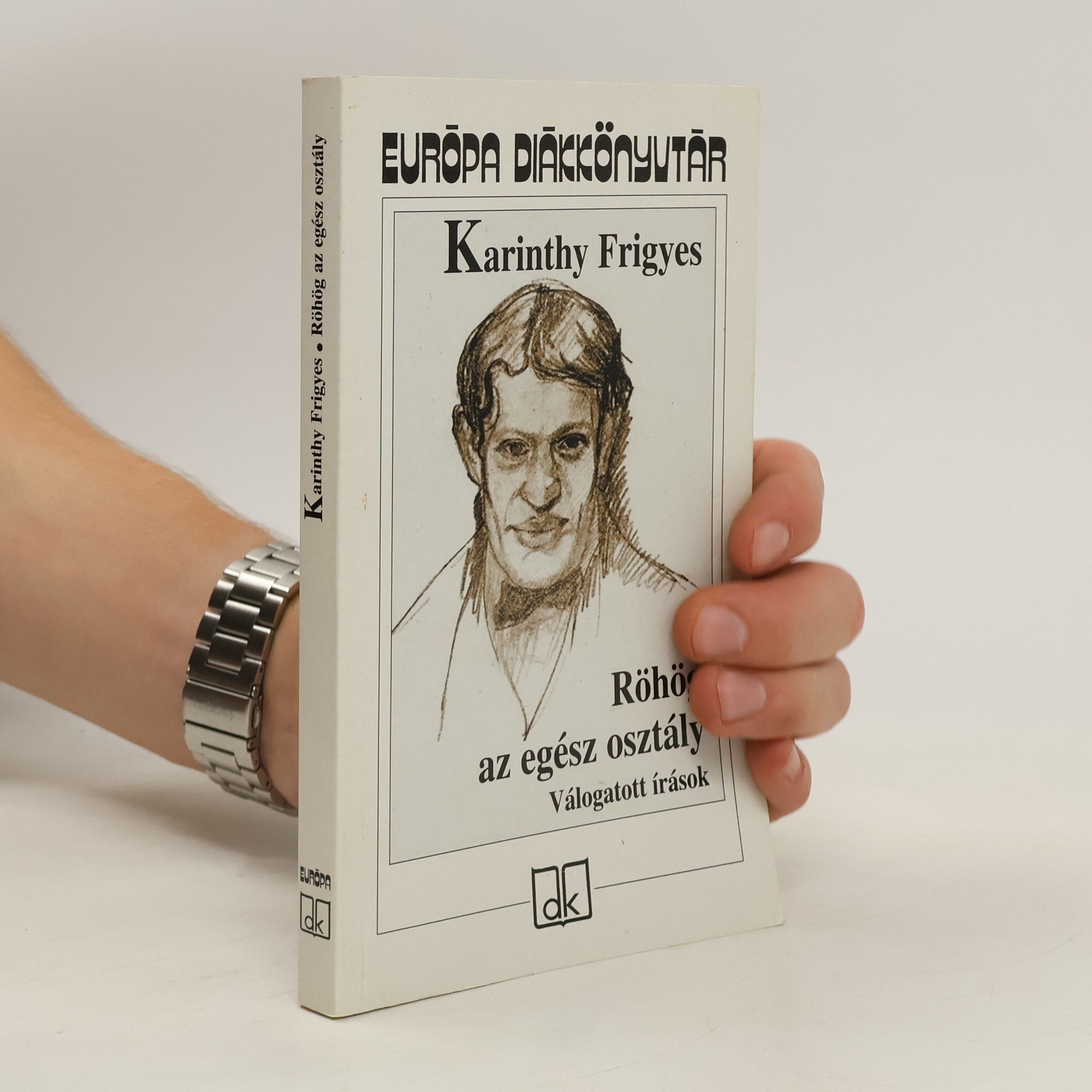



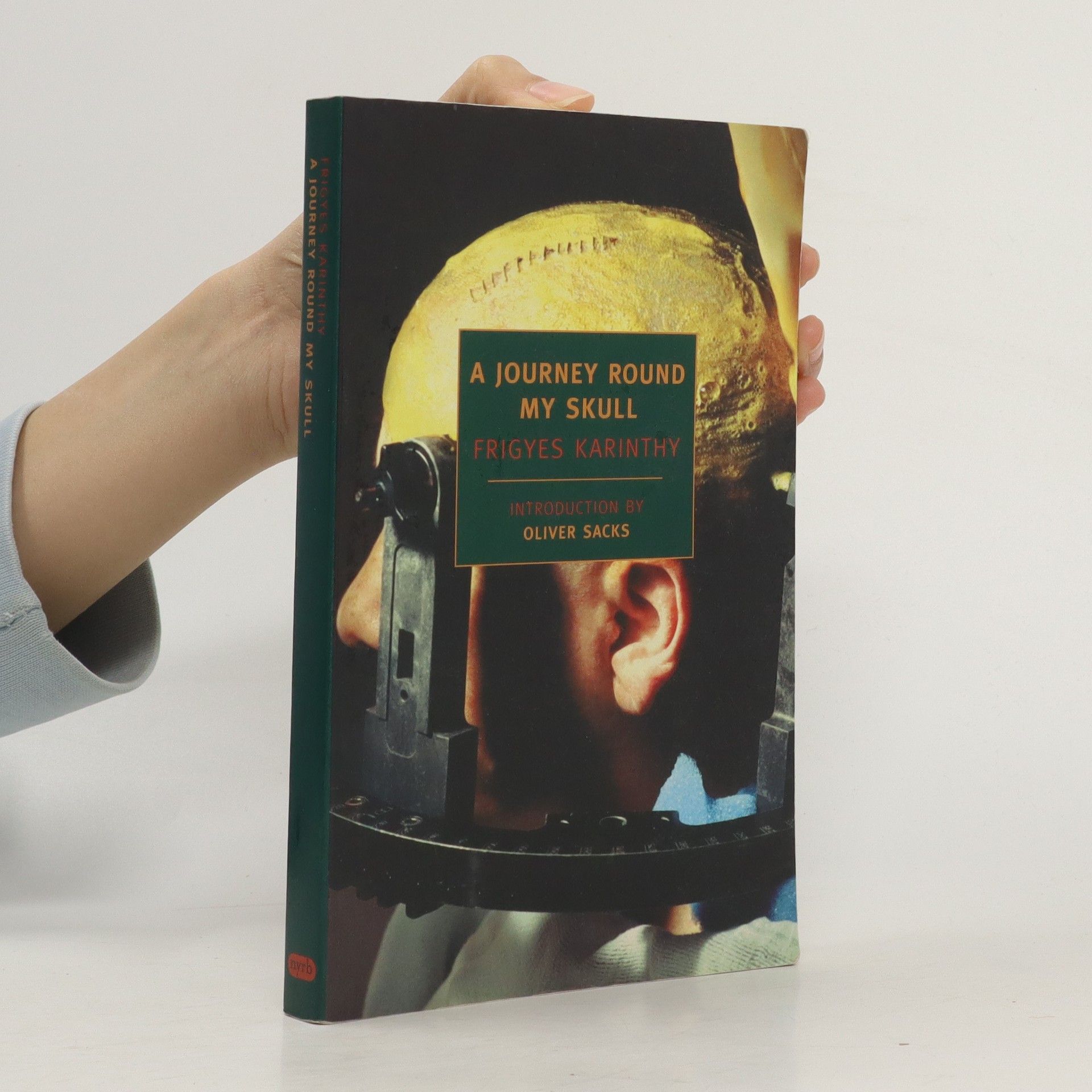
Tanár úr kérem
- 110 pages
- 4 hours of reading
Hol volt, hol nem volt, volt egyszer egy magyar író a 20. század elején. Ez az író tele volt kíváncsisággal, érdekelték a fölfedezések, a természettudományok, a lélektan legújabb eredményei, a fizika csodái. Képzelőereje világirodalmi méretekben is páratlan, fantasztikus világokat talált ki: Capilláriát, a tengermélyi társadalmat és Faremidót, a tökeletes géplények országát. Sziporkázó ötletei voltak, komikus képessége meghatározta a 20. század magyar humoros irodalmát. Mégis: a legnagyobb sikert egy szerény külsejű novellafüzérrel aratta. Húsznál alig több történettel, amelyek egy 19. század végi pesti iskolába kalauzolnak, 19. század végi diákokról szólnak, s amely mű a 21. évszázadban is éppen olyan friss, eleven és korszerű, mint volt kilenc évtizeddel annak előtte – itthon és külföldön egyaránt. A párizsi, a londoni vagy a pekingi diák pontosan ugyanazt érezte meg benne, amit a mai vagy tegnapi szegedi, nyíregyházi, kolozsvári, kassai vagy szabadkai iskolás, magyar és román, magyar és szlovák, magyar és szerb.Kiadványunk a Tanár úr kérem 1916-os első kiadásának (Vértes Marcel rajzaival, Dick Manó kiadása, Budapest) szövegét igazította – a szerző szándékát figyelembe véve – a mostani helyesírás szabályaihoz. 1945 után minden kiadás változtatott az eredeti szövegen, illetve néhányat kihagyott a történetek közül. Immáron fél évszázad óta most veheti az olvasó először kezébe a valódi, hiteles kiadást.
Die neuen Reisen des Lemuel Gulliver
- 204 pages
- 8 hours of reading
Von Karinthy wiedererschaffen, macht sich Lemuel Gulliver, seines Zeichens Wundarzt und britischer Staatsangehöriger, auf zwei neue Entdeckungsreisen. In beiden Abenteuern widerfährt ihm allerlei Ungewöhnliches und Absonderliches. Zunächst wird er durch einen geheimnisvollen Flugkörper von der Erde auf den von intelligenten Maschinen bewohnten Planeten "Faremido" entführt. Die zweite, ebenso unfreiwille Reise verschlägt ihn auf den Boden des Ozeans zu einer dort lebenden Gesellschaft der Frauen - was ihm als Mann eine Rolle völlig neuartiger Erfahrungen, aber auch Gefahren einbringt


